An essay I appreciate is John Burroughs’ “The Art of Seeing Things,” which includes excellent advice for observing nature. Burroughs insists there is an art to it, something nourished by love. “So far as seeing things is an art,” he wrote, “it is the art of keeping your eyes and ears open.” This is what I hope for with my newsletter, especially for The Field Trip.
Normally, when the newsletter cycle gets to The Field Trip, I report on a short day trip to some public place. It’s a chance to share it with others so they might want to go. But more fundamentally, I want to encourage people to engage in the world around them, to interact and see with senses open, to follow Burroughs’ instructions. I hope you’ll forgive me this week, because I am not describing a public landscape, but some place more important: my in-laws’ place. Still, it may encourage opening your senses. Read on!
Occasion
Every fall, as the air bites a bit and leaves start to curl, my in-laws (mother- and father-, brother- and sister-) host a cider pressing party. It inaugurates the season.
My in-laws live on adjacent properties with a little acreage on the south end of Whidbey Island, about 90 minutes from me. Across the land, a few dozen apple trees stand gathering sun all summer to produce a variety of fruits. When autumn arrives, the families gather apples. And during years when the crop looks light (like this year), they put the word out for friends to hoard and deliver their apples, too.
Work begins in the morning to set up the cider press, the tables for food, the fire pits, and much more. Dahlias are picked to brighten tables. Tents are hoisted to protect the food from rain or direct sun, doing nothing to keep the lingering bees away. Jugs are readied to contain the cider. At some point, friends and family start to arrive, and we fan out across the farm to harvest the apples still in the trees. We fill buckets and boxes and other containers with apples and apples and more apples and cart them to the staging area.
People find a place in the assembly—or disassembly—line and begin work and conversation. For some of us who do not live on the island, this is the only time during the year we see each other. People settle in to pre-wash or double-wash the apples. Some cut off scabs or check for worms and bad bruises. People take turns helping their young, delighted children put apples into the chute that leads to the grinder that crushes the apples and shoots them into the receiving tub. The motor provides the afternoon’s soundtrack, while juices drip into a clean bucket through a cheesecloth.
Once the tub is filled, it is time to crush the apple pieces. My ingenious, handy father-in-law built a powerful, and beautiful, apple press several years ago with a hydraulic press that ensures all the cider is captured. Someone carries the bucket of fresh-squeezed juice to the bottling station. One person pours, one person holds the funnel, one person applies the caps. This goes on for hours with fingers becoming stickier throughout the day, while the wafting sweetness of cider mixes with the acrid campfire smoke swirling through the year.
Dozens of people come, each bringing a dish for a potluck dinner. Finally, the press is turned off. Visiting goes on late enough everyone crowds the hand-made firepits (I mentioned my handy father-in-law, right?). Sometimes, people bring their instruments and jam. Lately, Mariners games are broadcast where they get eliminated from the playoffs, the only damper on the day (unless a kid meets a bee’s stinger).
The event is one of the most convivial I have known.
I have not made every cider-pressing party since I’ve been part of the family, but I have made more than I’ve missed—and that includes when it required a 6-hour drive to attend. It’s worth it.
Each year, I meet new people. Each year I re-meet the same people again. Children grow older. Some, like my niece, head off to college but Facetime for old times’ sake.
When people leave, they take a jug, or four, to set in their fridge or freezer. The generosity is easy: this year there were more than 130 gallons made. It’s delicious.
Reflection
I love this event because it occurs at one of my favorite places with some of my favorite people. It’s like a daylong hug, by the place and the people who make it, for me, a second, welcoming home.
But let me reflect less personally, too. Events like this, I’d guess, are uncommon in 2023. We hear about today’s epidemic of loneliness, suggesting we gather infrequently with friends. But once, when we didn’t drive to grocery stores and when we grew much of our own food and “put it up” for winter, a party like this might have been a regular occurrence. It would have been a time of collective activity, a coming-together of families, an effort to combine labor and share bounty (or divide slim pickings!).
As a young person, I embraced individualism. I would likely have identified it as a key value. Individualism remains an important identifier today among Americans to a high degree. Signs of it—literal signs—are everywhere: Don’t tread on me! Private Property: Keep Out!
Individual rights and enterprise are fundamental to American history and identity. However, so is collective action. Families and neighbors and communities came together to accomplish things and share and exchange goodwill. The lone genius is aberrant (if not abhorrent). Those figures who only see the individualism and not the communitarian misread our past, present, and future. It’s a tragedy we cultivate (or neglect), because coming together can hardly be beat!
Post-Script. We learned on the drive to the party that the House of Representatives passed a short extension to keep government funding going. During that process, and to come again soon, individuals threw tantrums and monkey wrenches into the proceedings, neglecting the rich traditions of cooperation. These practices press our luck; I prefer pressing apples.
Final Words
When I wrote my last book on public lands, I always told people interviewing me that one reason that public lands fascinated me was because they were a collective (if contested) responsibility in a nation exceedingly prideful of individual pursuits. Which is to say my last book connects to these themes.
Some local stories appeared this week. (Here. And here. And here.)
As always, you can find my books, and books where some of my work is included, at my Bookshop affiliate page (where, if you order, I get a small benefit).
Taking Bearings Next Week
The Library returns, and I think I’ll be diving into a local classic produced for political, more than literary, purposes. Stay tuned!



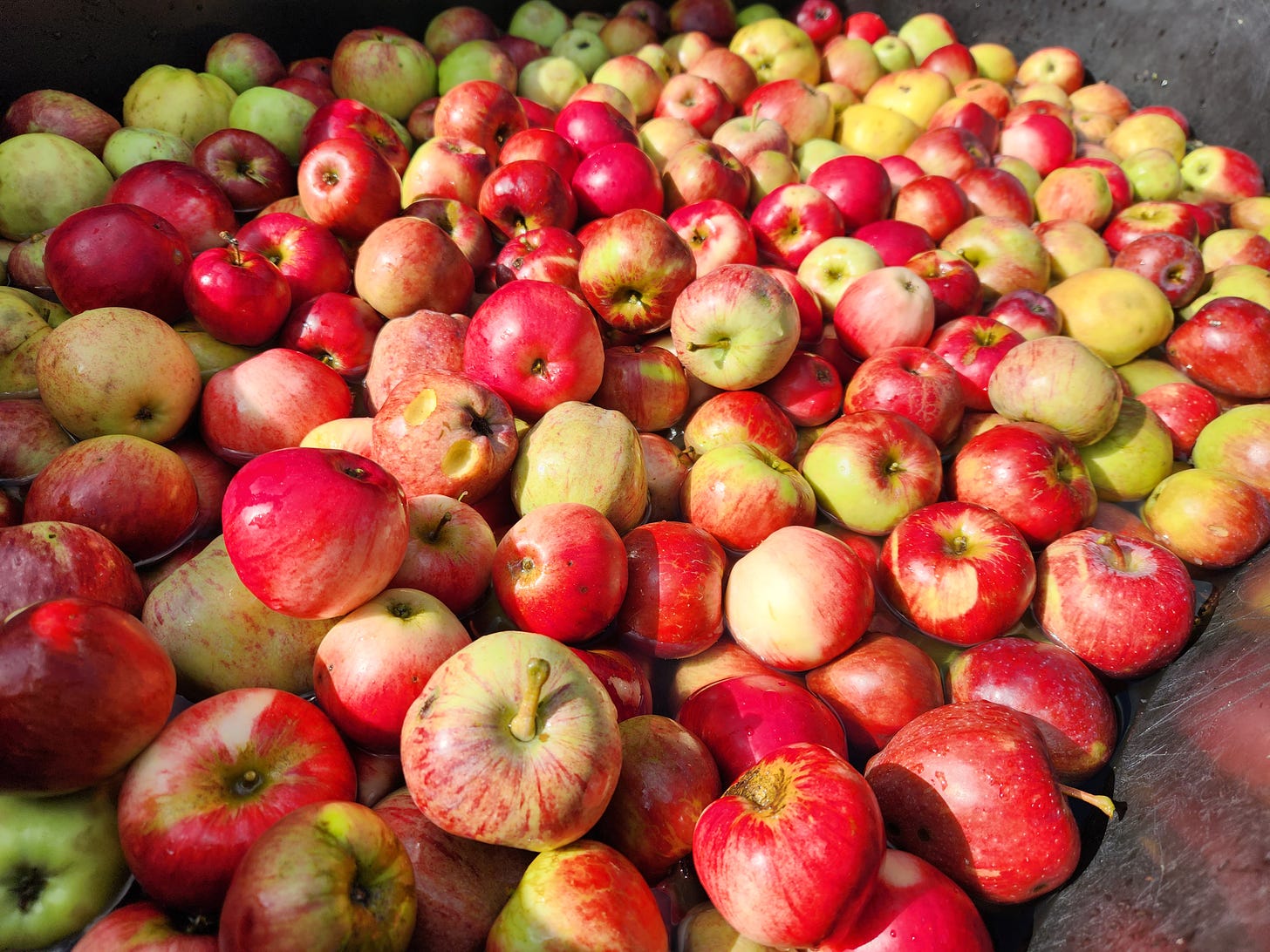
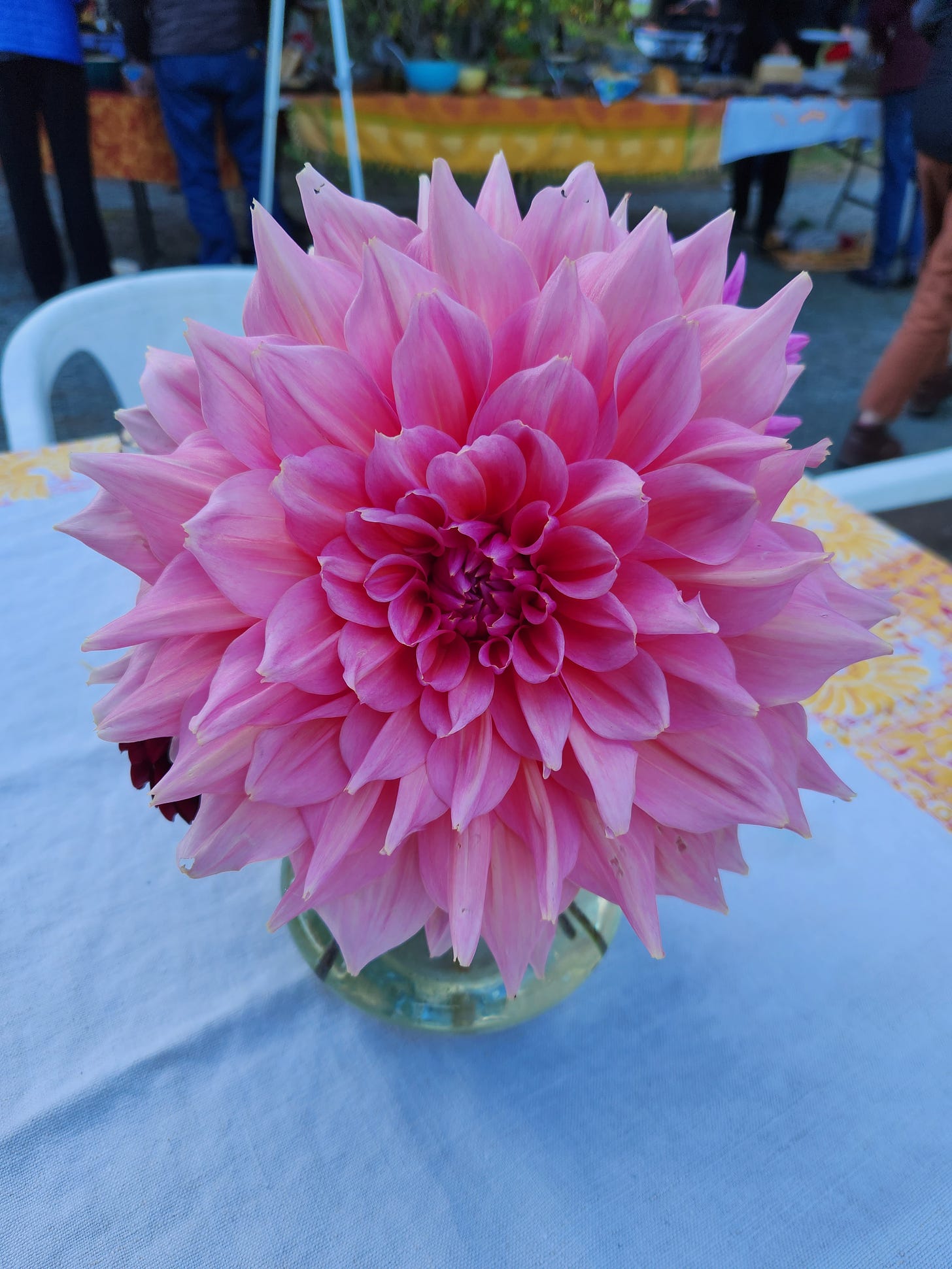
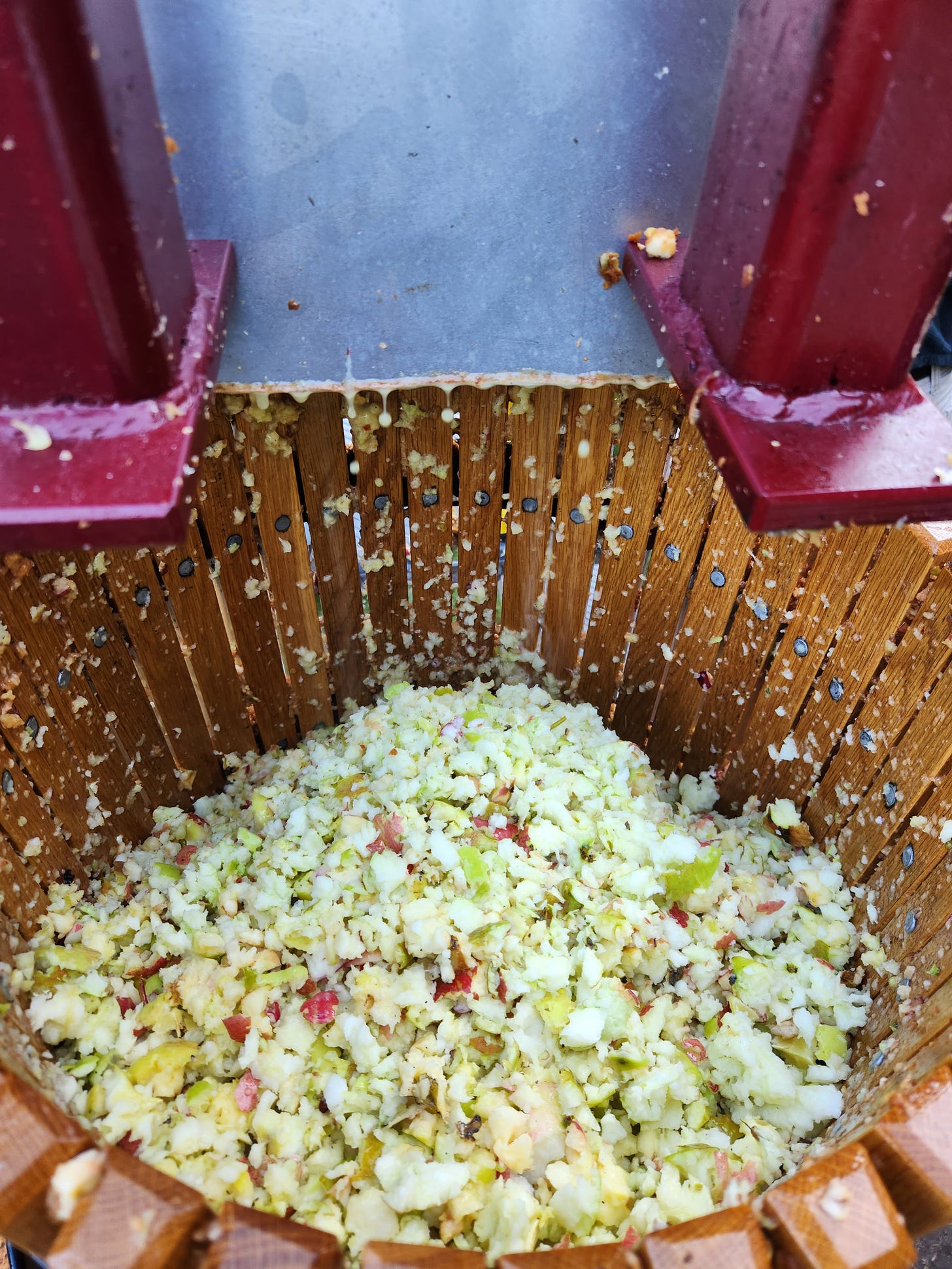
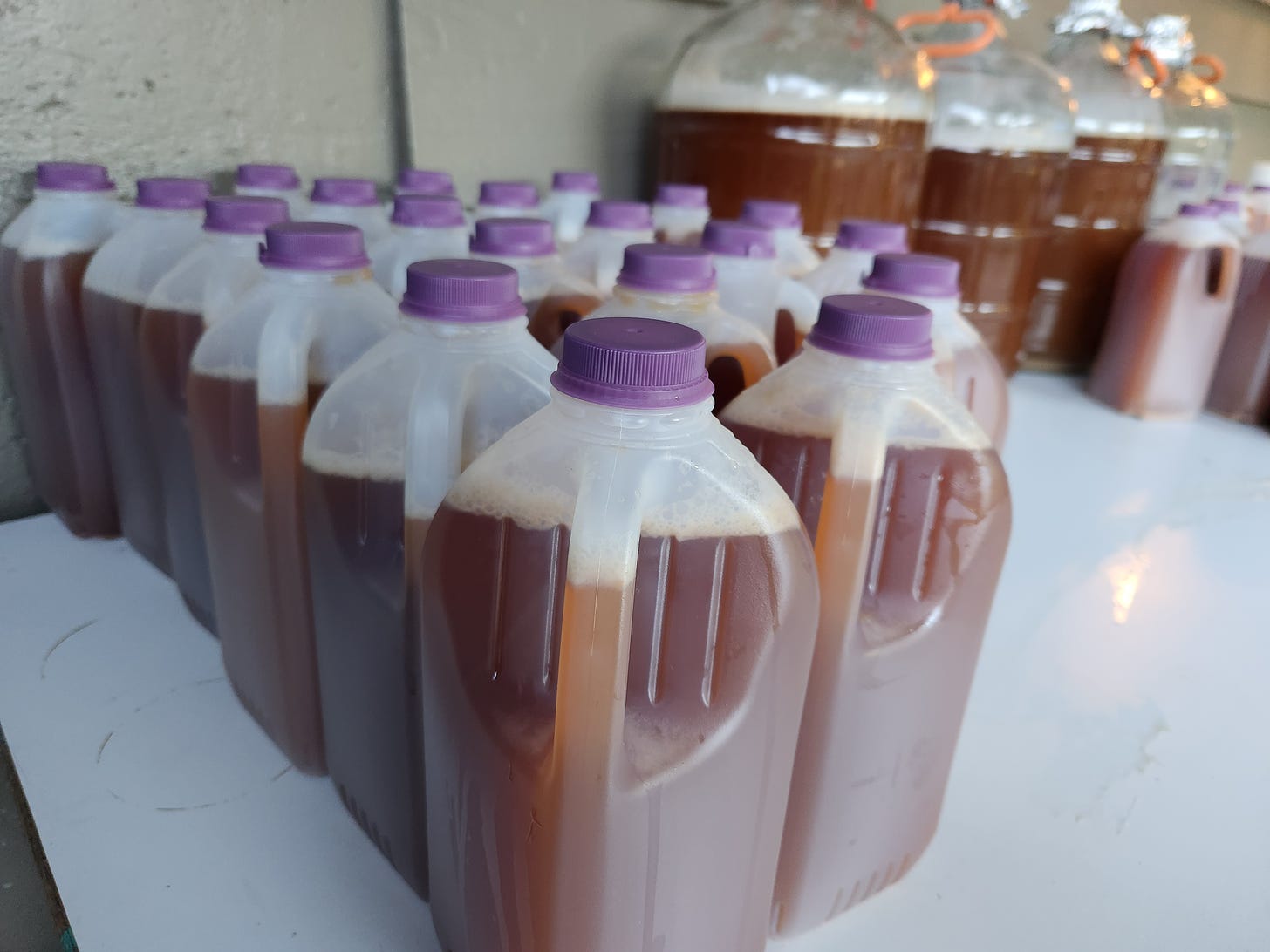
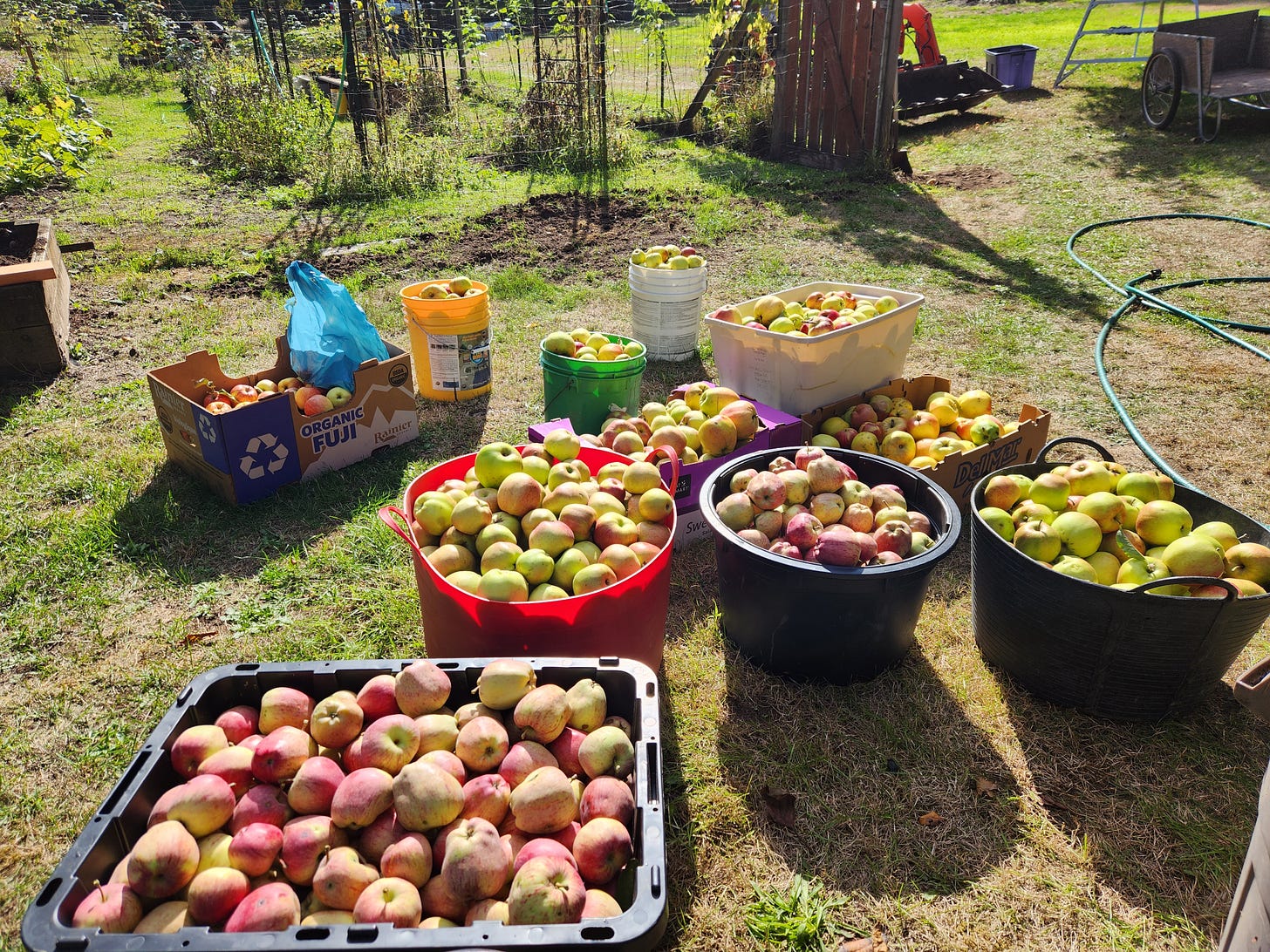
This was lovely! The event tugs at my heartstrings as well!. It’s there that life feels just perfect!!